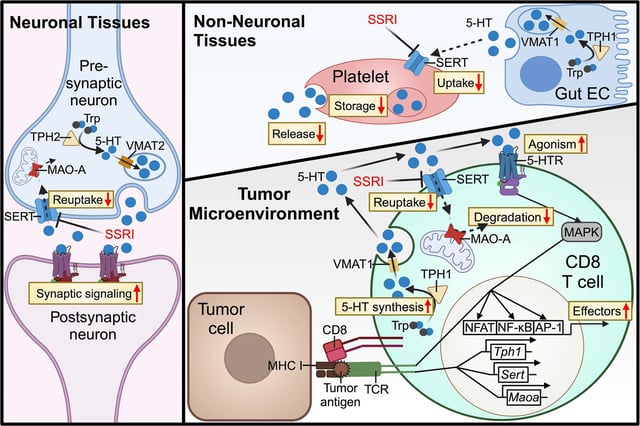Overview
- Selective serotonin reuptake inhibitors (SSRIs), widely prescribed for depression, reduced tumor sizes by more than 50% in mouse and lab cancer models.
- SSRIs reinvigorate killer T cells by increasing serotonin signaling, enabling them to better target and kill cancer cells in suppressive tumor environments.
- Combining SSRIs with immune checkpoint blockade therapy further enhanced tumor reduction, achieving remission in some preclinical cases.
- UCLA researchers have filed a patent for the SSRI-immunotherapy combination and are designing clinical trials to test its efficacy in human cancer patients.
- Repurposing SSRIs for cancer treatment could accelerate development timelines and reduce costs compared to creating new drugs, leveraging their established safety profiles.



